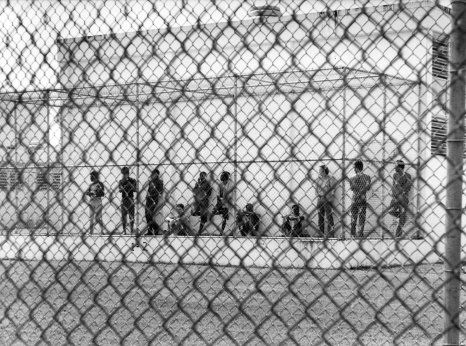USA: Indiana’s First Execution In 15 Years Looms

In 1997, 22-year-old Joseph Corcoran was living in his sister’s house. Her upcoming marriage meant that he would have to move out. On 26 July 1997, he awoke to hear his brother and others downstairs talking about him. Taking a loaded rifle with him, he went downstairs, where he shot his brother, his future brother-in-law and two other men there. The prosecutor offered to forgo the death penalty if he would plead guilty or waive his right to trial by jury and opt for trial before a judge only. Joseph Corcoran rejected both, without giving a specific reason, only that it was based on “a feeling”. At his May 1999 trial, the jury convicted him. The prosecution alleged one aggravating factor to make him eligible for the death penalty, namely multiple murders. The jury recommended the death penalty.
Joseph Corcoran’s mental condition around the time of the crime, when he was showing signs of increasing paranoia, was an issue from the outset. The initial view among various experts was that he had a schizotypal or paranoid personality disorder; indeed in 1992, he had been diagnosed with schizoid personality disorder and major depression. In a pre-sentencing memorandum to the judge in 1999, his lawyers included the opinion of two doctors who now diagnosed him with paranoid schizophrenia. The judge found that he was under the influence of a “mental or emotional disturbance” at the time of the crime, but that this had not affected his ability to conform his conduct to the law. At a hearing on 26 August 1999, the judge accepted the jury’s recommendation and sentenced him to death.
In 2000, the Indiana Supreme Court remanded the case for resentencing because of comments made by the trial judge that raised concerns that, in violation of state law, she may have relied upon non-statutory aggravating factors, including her remarks on the “innocence” of the victims, the “heinousness” of the murders, and the defendant’s future dangerousness. She had told him he was “a very dangerous, evil mass murderer” and that “I am convinced in my heart of hearts, Mr Corcoran, if given the opportunity, you will murder again”. She also said that it was “shameful that you would come into this court, Mr Corcoran, and try to characterize your illness as a mental illness to the disrespect of all people in this country that are in fact mentally ill”. On remand, in 2001, the same judge resentenced him to death. In 2002, the Indiana Supreme Court affirmed this but in 2010, the US Court of Appeals for the Seventh Circuit held that it had been wrong to do so, and that the trial judge had clearly “added weight to a statutory aggravator based on the non-statutory aggravators” and that Joseph Corcoran should receive a new sentencing hearing. The US Supreme Court reversed, ruling the Seventh Circuit had not found a violation of federal law.
In 2003 after Joseph Corcoran indicated that he wanted to drop his appeals, the post-conviction court ordered a hearing into his competency to do so. At the hearing, Joseph Corcoran told the judge that he wanted and deserved to be executed. His lawyer presented the testimony of three experts – a clinical psychologist, a forensic psychiatrist, and a clinical neuro-psychologist – who each concluded that Joe Corcoran has paranoid schizophrenia, and that one of his symptoms were recurrent delusions that prison guards were subjecting him to torture via an ultrasound machine, causing him pain and uncontrollable muscle twitching. All three experts concluded that Joseph Corcoran could not make a rational decision to waive his appeals because it stemmed from his wish to stop this torture.
In December 2003, the post-conviction court found that while “the evidence is clear that the Defendant suffers from a mental illness”, and the state conceded this, the defendant “understands what he is doing”. While “his choice of action may be unwise, and obviously against the advice of counsel, he is competent to make this ultimate decision in spite of his mental illness”. In 2005 the Indiana Supreme Court affirmed this finding. Justice Rucker again dissented, arguing that Joseph Corcoran was not competent and that his colleagues had given inadequate weight to the expert opinions. He wrote: “It is apparent that since July 1997 Corcoran’s mental state has deteriorated significantly. So much so that his personality disorder has now developed into full-blown paranoid schizophrenia. In short, Corcoran is seriously mentally ill”. In 2008, when the US Court of Appeals for the Seventh Circuit upheld this, one of the three judges dissented, concluding that the state Supreme Court’s decision was “unreasonable error”.
His current lawyers state that Joseph Corcoran “lives each day believing prison guards use an electronic device to bombard him with ultrasound waves... He believes he can hear people talking about him through the walls of his cell. He holds the delusional belief that he speaks in his sleep, saying embarrassing or provocative things to make people act hostile toward him. His intense delusions cause him to believe that while awake, he is actually sleeping and speaking involuntarily”.
Indiana accounts for 20 of the USA’s 1,605 executions since 1976. There have been 23 executions in the USA this year. This would be Indiana’s first execution since 11 December 2009. Amnesty International opposes the death penalty in all cases unconditionally.